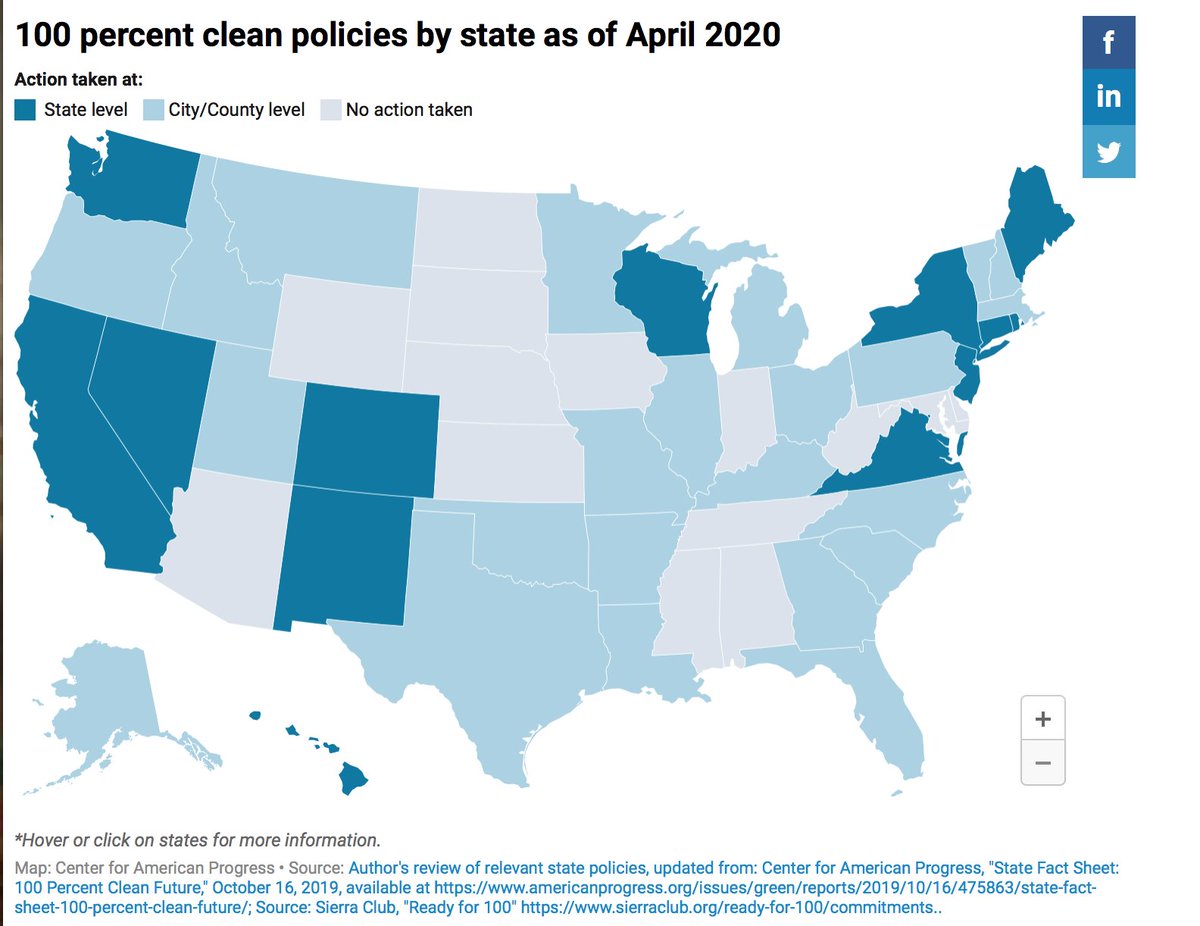
The full #RhodeIsland #ActonClimate 2022 update of the state 2016 greenhouse gas reduction plan is just up on line, comment quick since we basically have no time to review it before it's final. #climate climatechange.ri.gov/act-climate/wo…
To say we've had uneven progress is an understatement:
(in 2018)
Since 2016, electric power consumption emissions decreased by 28.0%,
heating emissions INCREASED by 13.5%,
commercial heating emissions INCREASED 8.8%,
transportation emissions INCREASED 8.8%
...priorities
(in 2018)
Since 2016, electric power consumption emissions decreased by 28.0%,
heating emissions INCREASED by 13.5%,
commercial heating emissions INCREASED 8.8%,
transportation emissions INCREASED 8.8%
...priorities
Lots of good policy ideas upfront. Hope this will be introduced this coming leg session: "Like the .. 100% RES"..a "renewable thermal standard to phase thermal emissions down at intervals that align with the #ActonClimate mandates." @DawnEuer @SenatorRuggerio @JoeShekarchi
Here's the punchline:
"By modeling a short list of key policy scenarios as outlined in the report, it is projected
that #RhodeIsland slightly misses the #ActonClimate’s 2030 reduction mandate of 45% by 0.5
MMTCO2e." (7.69 from 1990 baseline 12.48 MMTCO2e).
38.4% =Not slightly
"By modeling a short list of key policy scenarios as outlined in the report, it is projected
that #RhodeIsland slightly misses the #ActonClimate’s 2030 reduction mandate of 45% by 0.5
MMTCO2e." (7.69 from 1990 baseline 12.48 MMTCO2e).
38.4% =Not slightly
I like this a lot: "In focusing on systems-level interventions, we de-emphasize priorities for individual action. This is not intended to downscale the importance of our individual decisions within our collective impact...." (p68)
..much to be done to change our culture of waste
..much to be done to change our culture of waste
Wait! Page 68 has a different number than the Executive Summary = 7.39 MMTCO2e in 2030.
That's 40.8% reductions from the baseline.
Which is correct?
That's 40.8% reductions from the baseline.
Which is correct?
Reviewers (like the EC4's Science and Technology Advisory Board, the "STAB") need much more detail to evaluate the plausibility of the modeling done by @RockyMtnInst and @AcadiaCtr. Like this:
"68% of all new passenger vehicles
sold in the state would be electric in 2030." (69)
"68% of all new passenger vehicles
sold in the state would be electric in 2030." (69)
What were the predictions for the seven years getting to 2030? Those numbers could be wildly high or low.
Another key one:
"The EPS analysis shows that 22% of sales of new non-electric space heating equipment
and 8% of the sales of new non-electric water heating equipment are replaced with the
sale of efficient electric equipment from 2021 to 2030." (70)
Seems very low to me.
"The EPS analysis shows that 22% of sales of new non-electric space heating equipment
and 8% of the sales of new non-electric water heating equipment are replaced with the
sale of efficient electric equipment from 2021 to 2030." (70)
Seems very low to me.
KEY ISSUE OMITTED: "RI’s leak prone pipe replacement program was not examined as part of this analysis because the level of uncertainty surrounding EPA’s per mile emission factors is too high.We propose that this issue be examined in greater detail for the 2025 Climate Strategy"
Here's a nice Q to @SenWhitehouse "How do you respond to people who say, “Hey it's just little Rhode Island, it's not going to make any difference?” ...in terms of leading by example, or just trying to set the stage for bigger things?"(71) The Senator: we've trailblazed.
The EC4 STAB (on which I sit) delivered a memo to the EC4 calling for modeling and data to be made available to them and hopefully the public. Here's an example of why we need that.
Here's an example for the climate DASHBOARD the state needs:
As of October 2022, Rhode Island has 6275 registered electric vehicles..for the transportation sector to meet its 2030 target,#RhodeIsland will need to have roughly 86,00056 registered EVs on the road
=7.3% there
As of October 2022, Rhode Island has 6275 registered electric vehicles..for the transportation sector to meet its 2030 target,#RhodeIsland will need to have roughly 86,00056 registered EVs on the road
=7.3% there
But this on p. 90 is right on:
"It would be imprudent to continue to
reinforce and expand gas infrastructure that could not be easily and affordably decarbonized by 2050.
Therefore, in the coming years, more emphasis should be placed on non-pipes alternatives (NPA)."
"It would be imprudent to continue to
reinforce and expand gas infrastructure that could not be easily and affordably decarbonized by 2050.
Therefore, in the coming years, more emphasis should be placed on non-pipes alternatives (NPA)."
And p. 91:
"There is an urgent need to reconsider the existing gas infrastructure and planning in our state to avoid burdening consumers with the cost of stranded fossil gas assets, as the state transitions to carbon neutrality"
The thermal sector study showed heat pumps better
"There is an urgent need to reconsider the existing gas infrastructure and planning in our state to avoid burdening consumers with the cost of stranded fossil gas assets, as the state transitions to carbon neutrality"
The thermal sector study showed heat pumps better
In sum--there's ton here to dive into and discuss. It's an important update to 2016 plan, but doesn't allow real examination of scenarios, which is key. Many crucial issues are raised, which is valuable. We need real modes for input and real prioritization, incl of hard topics.
@threadreaderapp unroll
• • •
Missing some Tweet in this thread? You can try to
force a refresh






